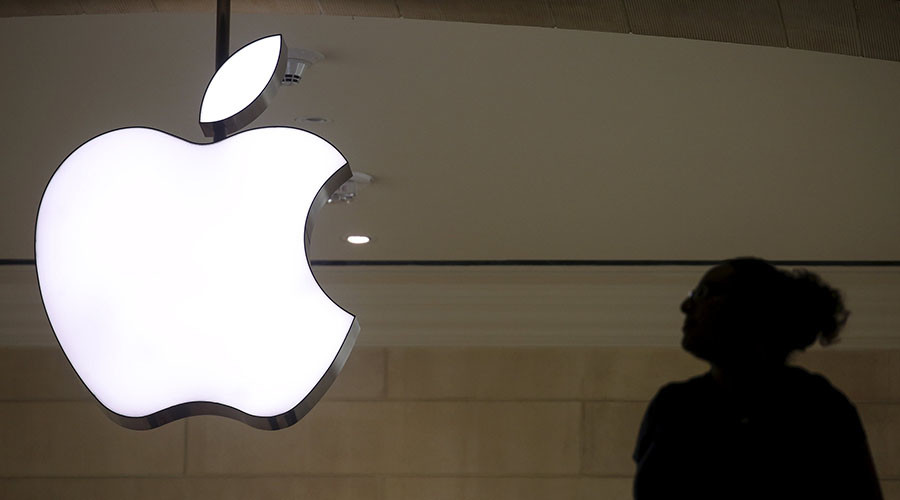Apple to argue FBI order to open iPhone violates free-speech rights while tightening its security

Apple plans to argue that being forced to comply with an FBI court order to disable security features on an iPhone would infringe on the company’s First Amendment rights. Meanwhile, the company is reportedly promising to make its product harder to hack.
The FBI is trying to coerce the global technology giant into helping it to determine the passcode on the work phone used by San Bernardino shooter Syed Farook, who killed 14 people and injured 22 at an office party in December with the help of his wife. The FBI wants the company to create special software to disable security features that, among other things, render the iPhone unreadable after 10 incorrect entries of the passcode.
Apple’s lawyer, Theodore Boutrous, told the Los Angeles Times that forcing the company to write software would “breech its free speech rights under the First Amendment.”
The company will also argue in its legal challenge that the Justice Department’s request that it help the FBI hack into an iPhone is an improper use of an 18th century law, the 1789 All Writs Act, which established the US federal justice system and granted federal judges the power to issue orders to other courts. That law’s power has been extended since then, however, and now allows courts to issue orders to corporations. In 1977, for instance, the government made phone companies help it set up devices to record all phone numbers called from a specific line.
Apple intends to argue that the 1789 law has never been used to compel a company to write software to help the government.
“The government is really seeking to push the courts to do what they haven’t been able to persuade Congress to do,” Boutrous told the AP. “That’s give it more broad, sweeping authority to help the Department of Justice hack into devices, to have a backdoor into devices, and the law simply does not provide that authority.”
Apple has both fought and complied with government requests under the force of the All Writs Act in the past, according to Reuters. In a federal Brooklyn Court in October, prosecutors sought to have a judge issue an order directing Apple to break the security features on an iPhone seized by the Drug Enforcement Administration from the home of a suspected meth dealer named Jun Feng.’
In that case, Apple argued the situation “would be no different than if the government sought to use the… Act to force a safe manufacturer to travel around the country unlocking safes that the government wants to access, or to make a lock manufacturer pick locks for the government,” according to Reuters.
The judge has yet to rule on that case.
It is also known that Apple has previously compiled with government orders issued under the force of the All Writs Act. The company helped New York investigators on a suspected child sex abuse case in 2008, and similarly with the phone of an alleged child pornographer suspect in Washington in 2013, and a drug suspect’s phone in Florida in 2015.
Last week, Magistrate Judge Sheri Pym in California ordered Apple to create specialized software to help the FBI. After Pym, the case would move to a US District Court judge, and then probably on to the 9th Circuit Court of Appeals.
Apple’s filing is due by Friday.
Meanwhile, the New York Times has reported that Apple engineers have begun developing new security measures for iPhones that even the company would not be able to hack. This could create additional challenges for law enforcement agencies.
Apple designed each iPhone with a built-in troubleshooting feature that lets the company update the system software without a user having to enter a password. It was created so that the company could repair malfunctioning phones. The FBI wants to exploit that feature to unlock the San Bernardino shooter’s phone.
The Times reported that Apple officials alluded to this vulnerability in a conference call, saying that it is something they are working to remedy and that iPhone security would continue to improve.
Политика конфиденциальности | Правила пользования сайтом







